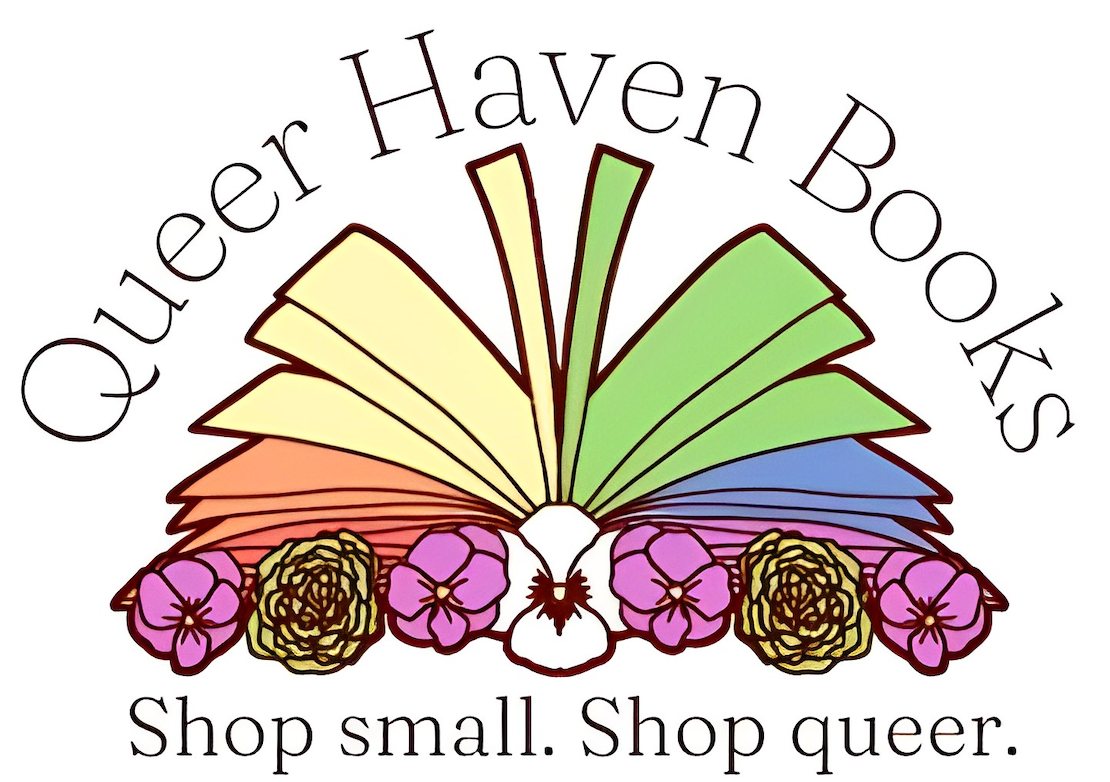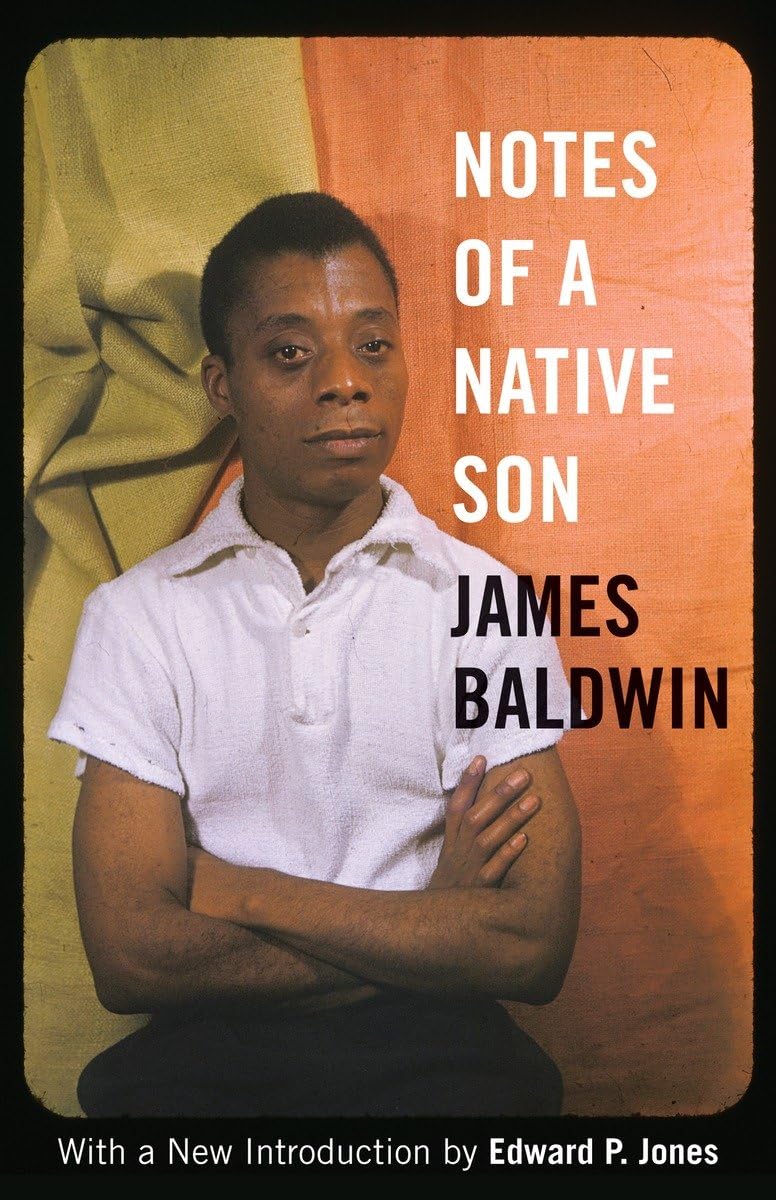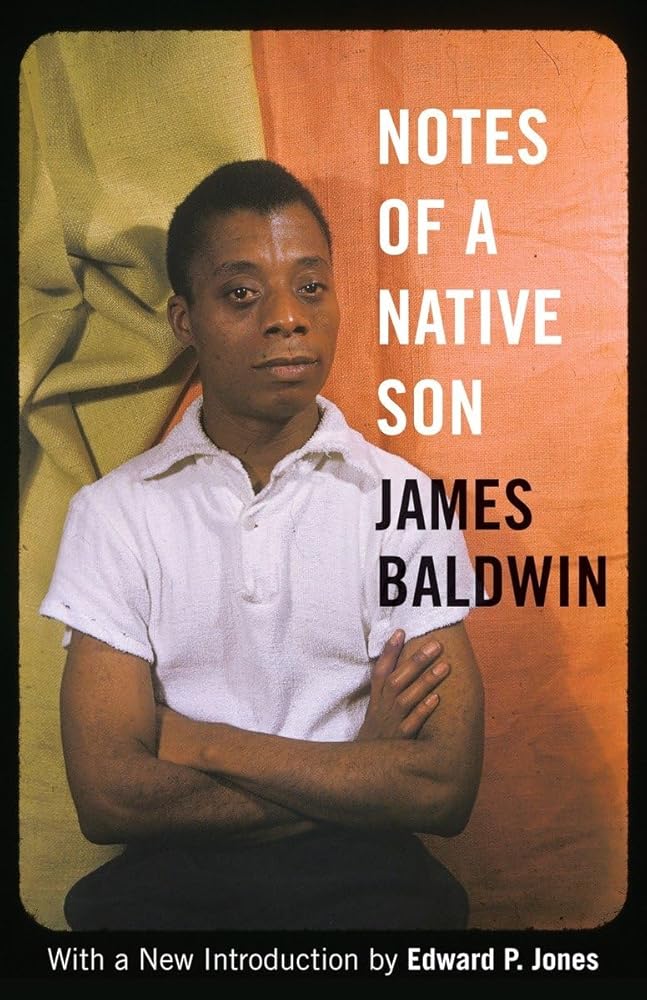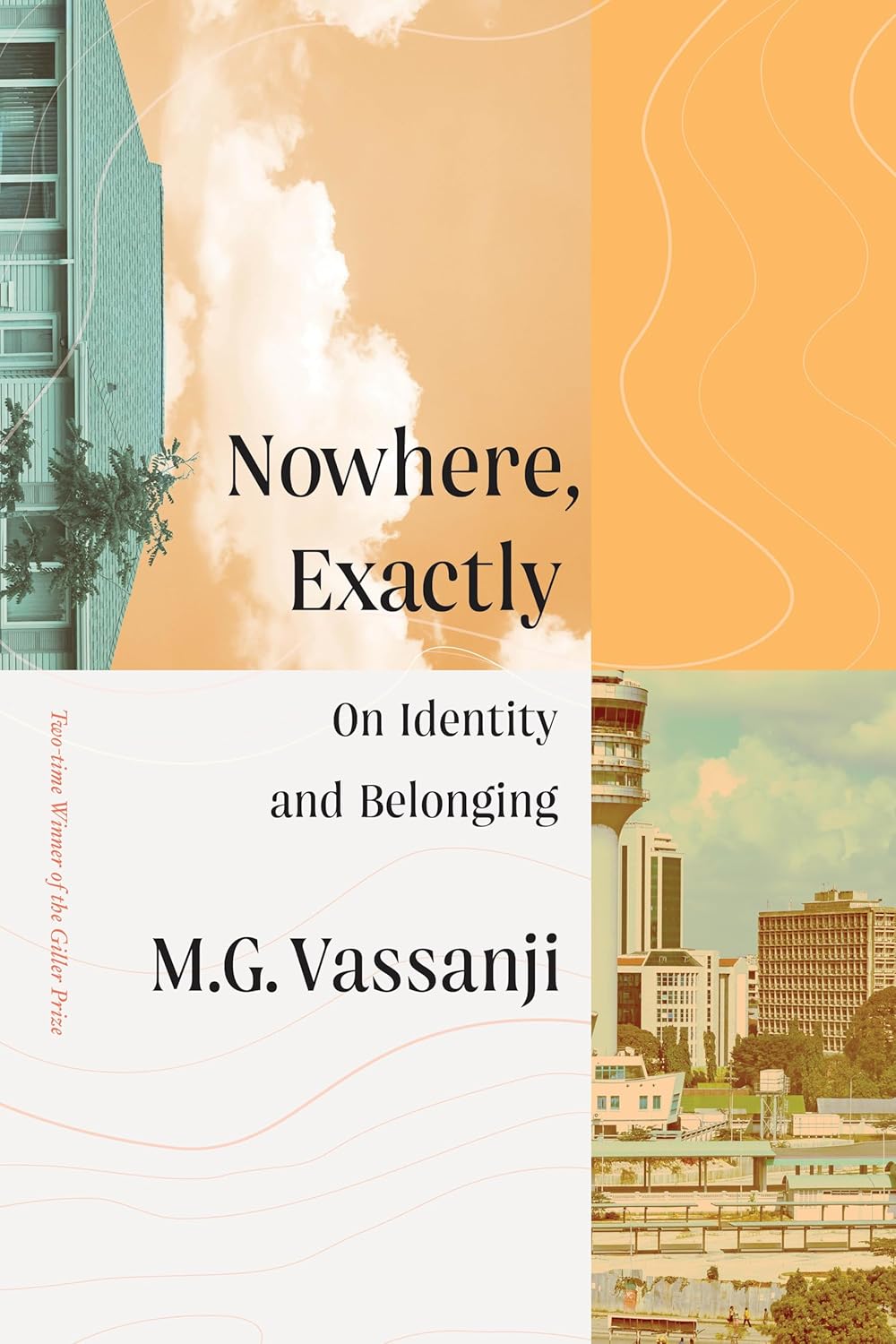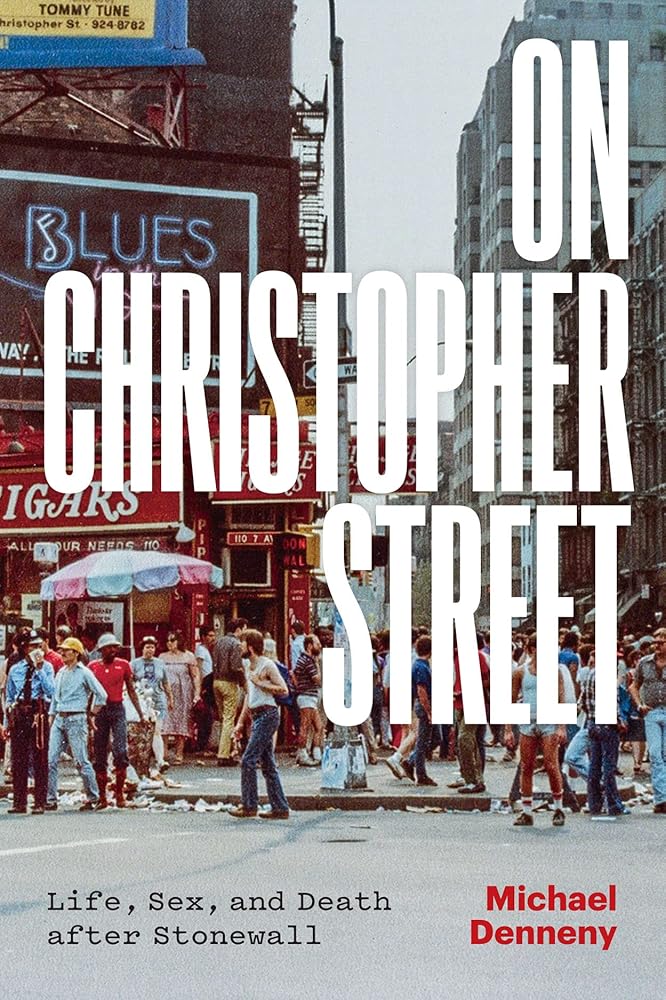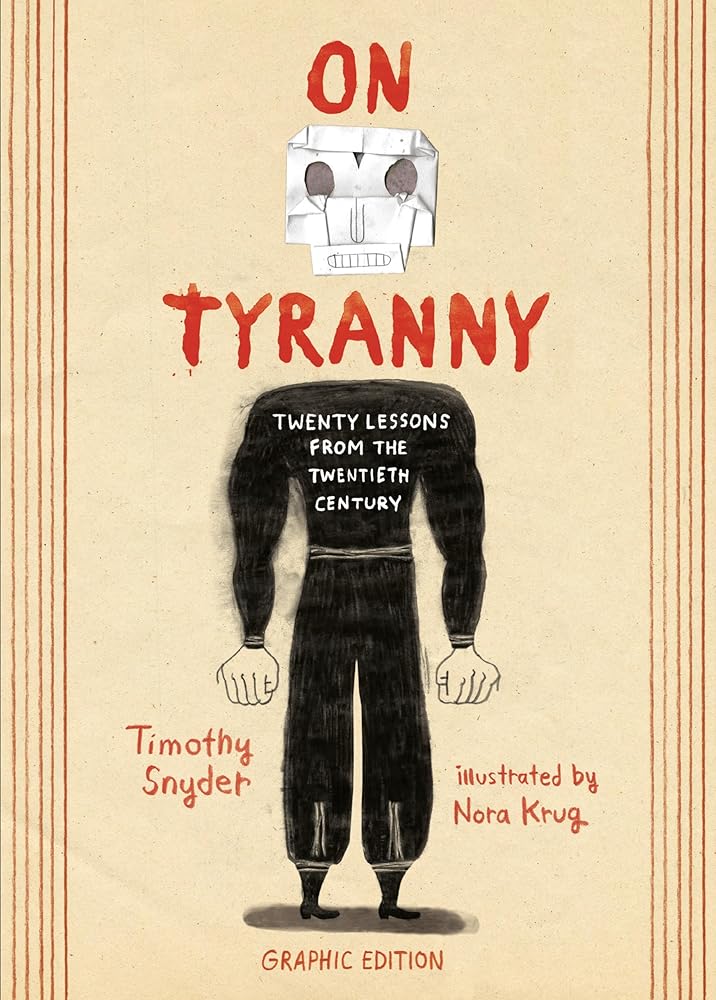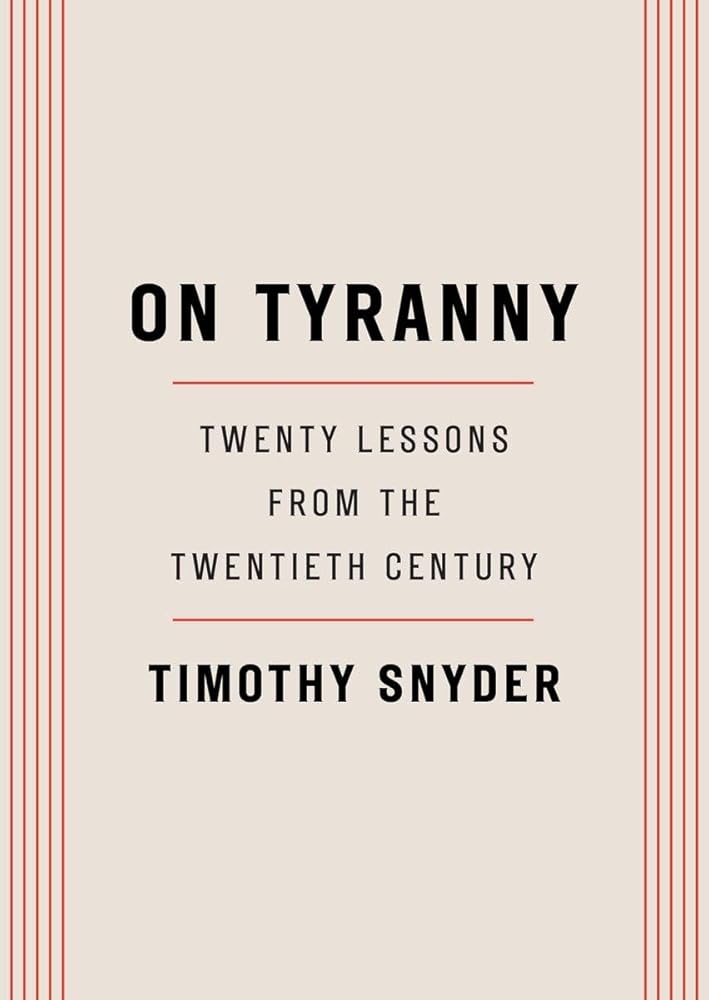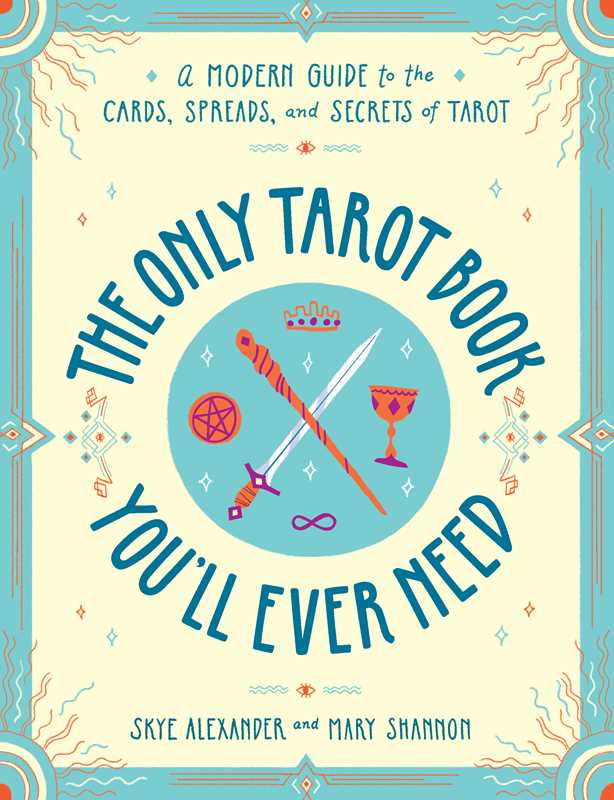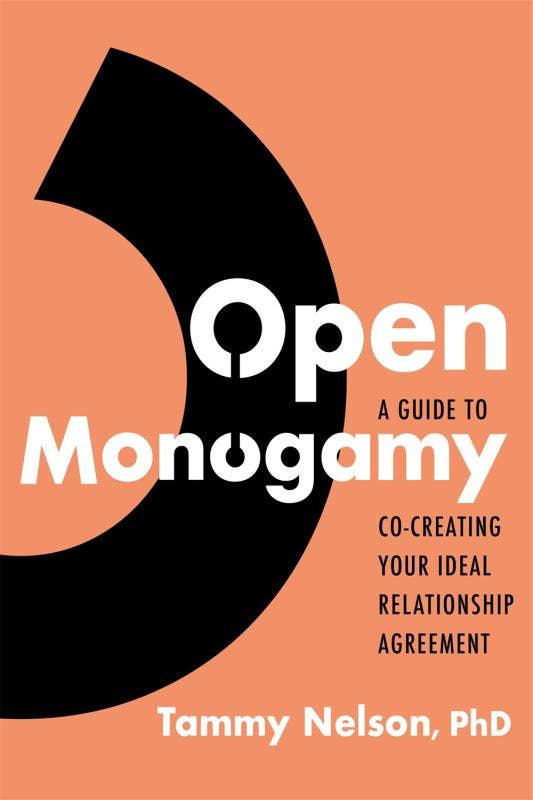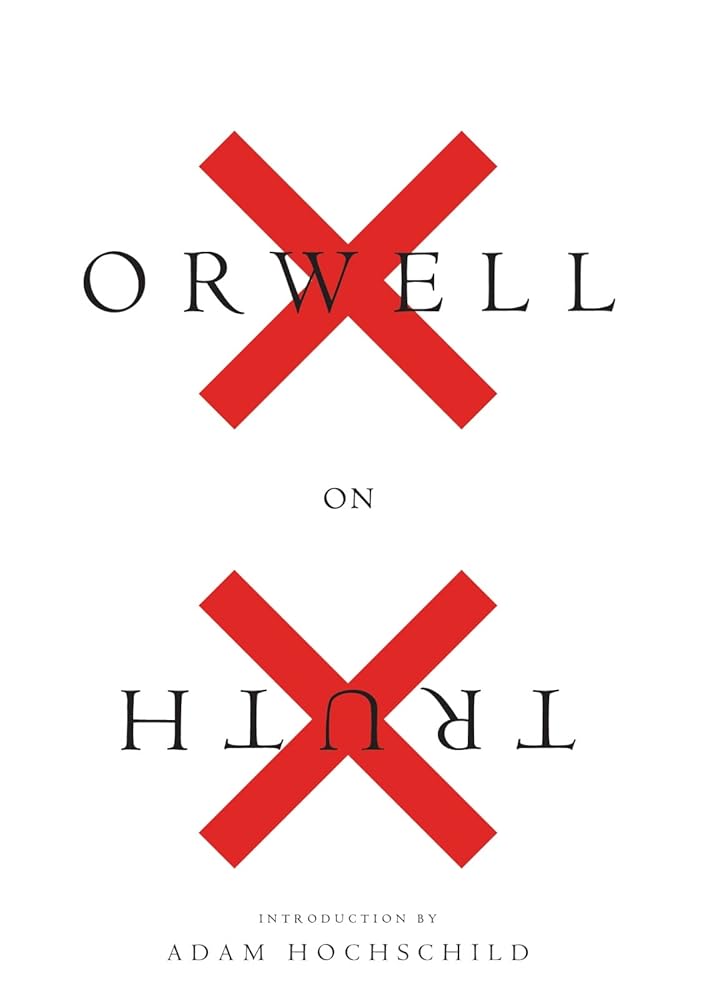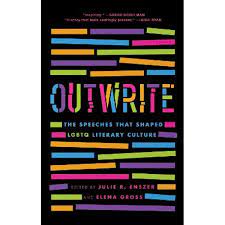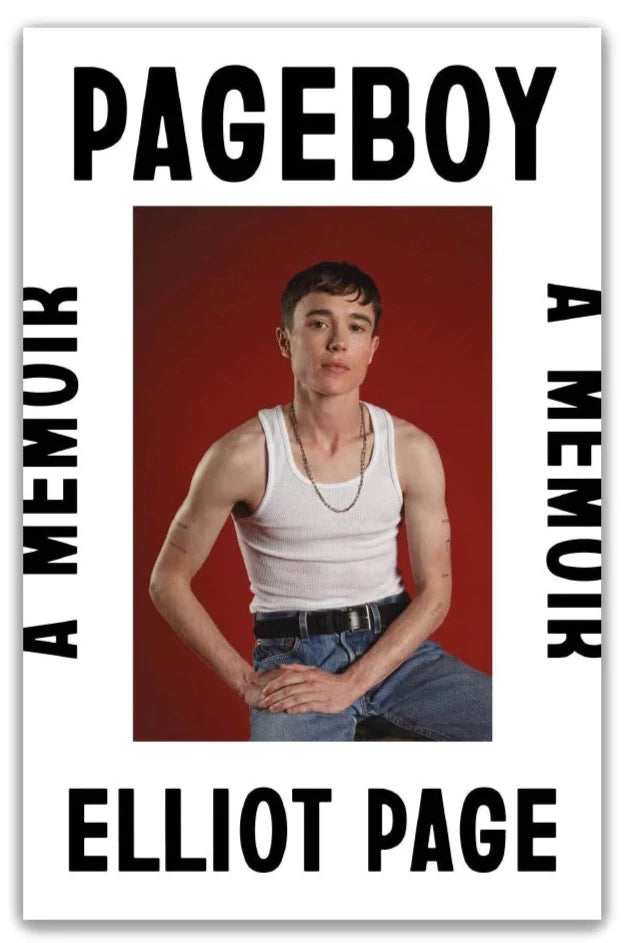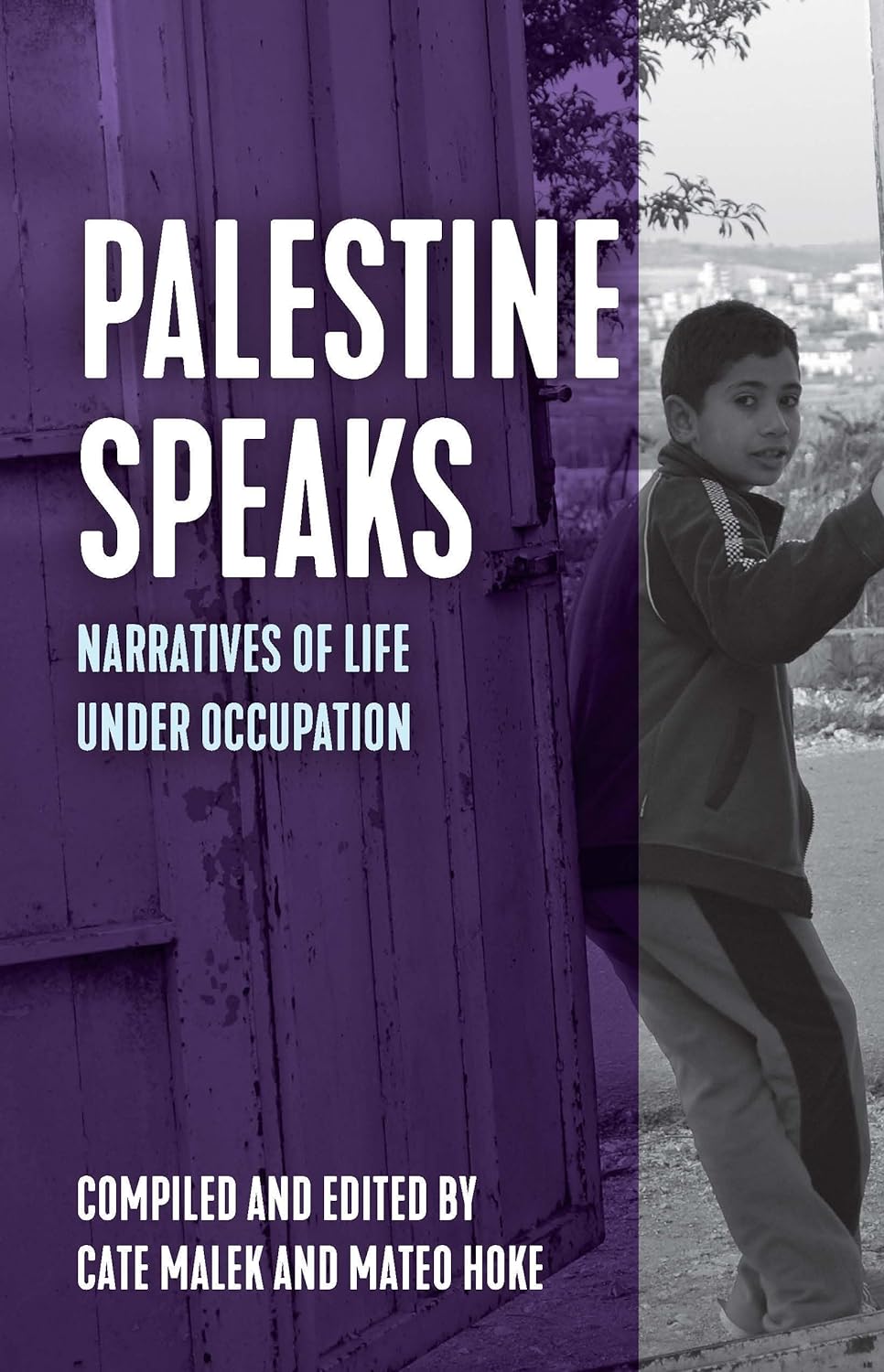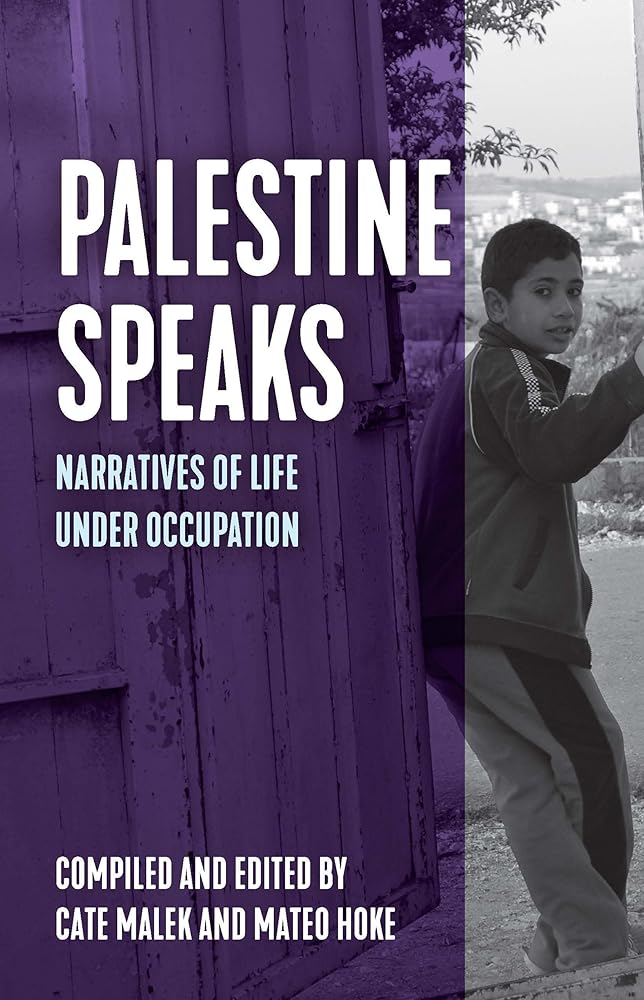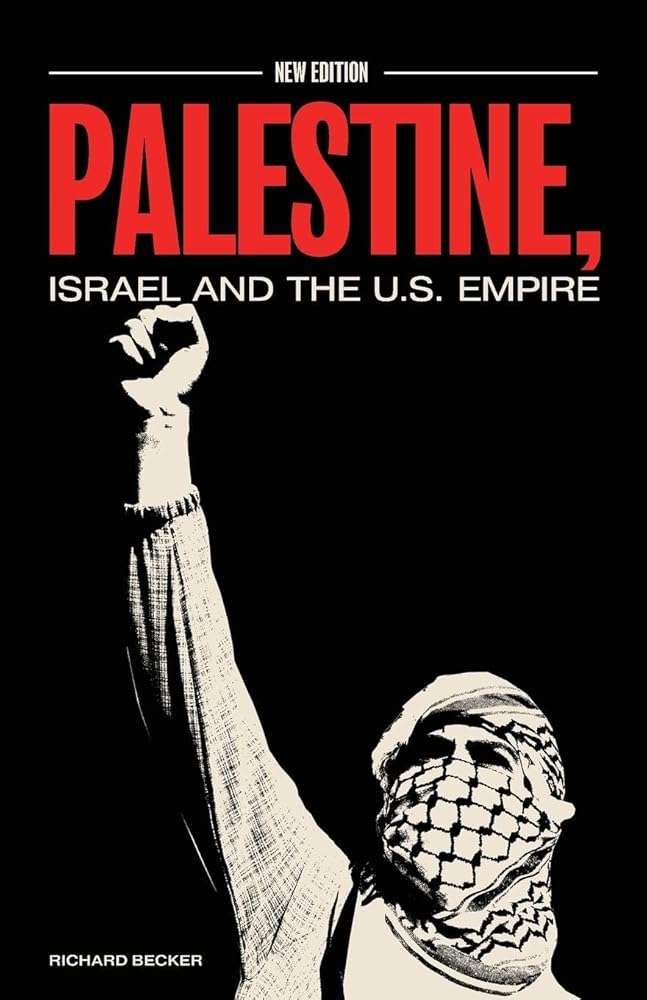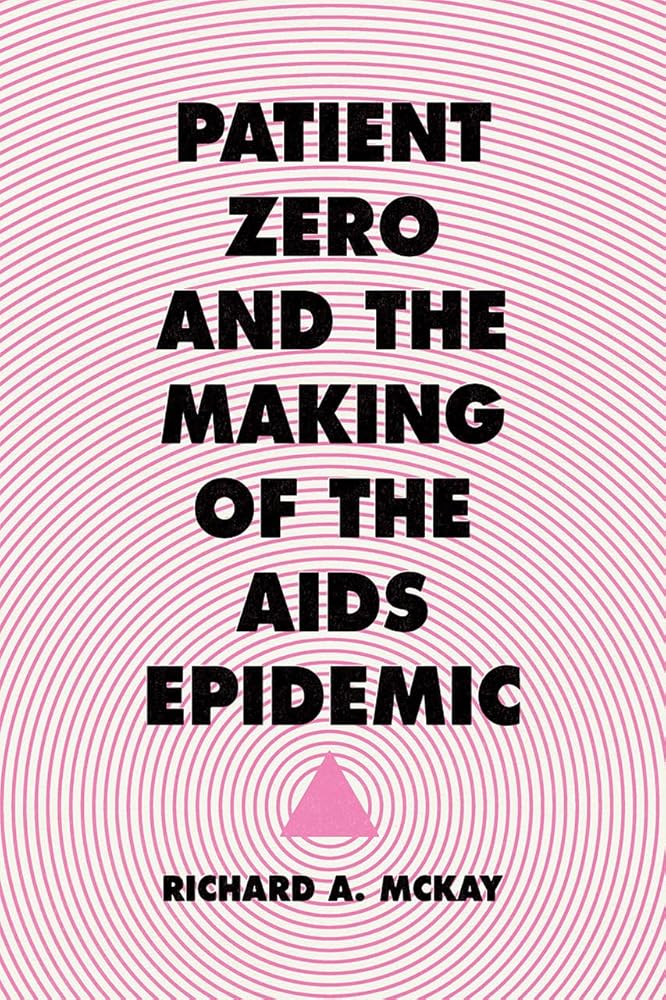Sort by:
364 products
364 products
#26 on The Guardian's list of 100 best nonfiction books of all time, the essays explore what it means to be Black in America
In an age of Black Lives Matter, James Baldwin's essays on life in Harlem, the protest novel, movies, and African Americans abroad are as powerful today as when they were first written. With films like I Am Not Your Negro and the forthcoming If Beale Street Could Talk bringing renewed interest to Baldwin's life and work, Notes of a Native Son serves as a valuable introduction.
Written during the 1940s and early 1950s, when Baldwin was only in his twenties, the essays collected in Notes of a Native Son capture a view of black life and black thought at the dawn of the civil rights movement and as the movement slowly gained strength through the words of one of the most captivating essayists and foremost intellectuals of that era. Writing as an artist, activist, and social critic, Baldwin probes the complex condition of being black in America. With a keen eye, he examines everything from the significance of the protest novel to the motives and circumstances of the many black expatriates of the time, from his home in “The Harlem Ghetto” to a sobering “Journey to Atlanta.”
Notes of a Native Son inaugurated Baldwin as one of the leading interpreters of the dramatic social changes erupting in the United States in the twentieth century, and many of his observations have proven almost prophetic. His criticism on topics such as the paternalism of white progressives or on his own friend Richard Wright’s work is pointed and unabashed. He was also one of the few writing on race at the time who addressed the issue with a powerful mixture of outrage at the gross physical and political violence against black citizens and measured understanding of their oppressors, which helped awaken a white audience to the injustices under their noses. Naturally, this combination of brazen criticism and unconventional empathy for white readers won Baldwin as much condemnation as praise.
Notes is the book that established Baldwin’s voice as a social critic, and it remains one of his most admired works. The essays collected here create a cohesive sketch of black America and reveal an intimate portrait of Baldwin’s own search for identity as an artist, as a black man, and as an American.
By: M.G. Vassanji (Author), 2024, Hardcover
SHORTLISTED FOR THE WRITERS' TRUST BALSILLIE PRIZE FOR PUBLIC POLICY
From one of Canada's most celebrated writers, two-time Giller Prize winner M.G. Vassanji, comes a thoughtful meditation on what it means to belong in the world.
Home is never a single place, entirely and unequivocally. It is contingent. The abstract "nowhere," then, is the true home.
M.G. Vassanji has been exploring the immigrant experience for over three decades, drawing deeply on his own transnational upbringing and intimate understanding of the unique challenges and perspectives born from leaving one's home to resettle in a new land. The question of identity, of how to configure and see oneself within this new land, is one such challenge faced. But Vassanji suggests that a more fundamental and slippery endeavour than establishing one's identity is how, if ever, we can establish a sense of belonging. Can we ever truly belong in this new home? Did we ever truly belong in the home we left? Where exactly do we belong? For many, the answer is nowhere exactly.
Combining brilliant prose, thoughtful, candid observation, and a lifetime of exploring how we as individuals are shaped by the places and communities in which we live and the history that haunts them, Nowhere, Exactly examines with exquisite sensitivity the space between identity and belonging, the immigrant experience of both loss and gain, and the weight of memory and nostalgia, guilt and hope felt by so many of those who leave their homes in search of new ones.
Through the eyes of publishing icon Michael Denneny, this cultural autobiography traces the evolution of the US’s queer community in the three decades post-Stonewall.
The Stonewall Riots of 1969 and the AIDS crisis of the 1980s have been captured in minute detail, and rightly memorialized in books, on tv, and in film as pivotal and powerful moments in queer history. Yet what about the moments in between—the tumultuous decade post-Stonewall when the queer community’s vitality and creativity exploded across the country, even as the AIDS crisis emerged?
Michael Denneny was there for it all. As a founder and editor of the wildly influential magazine Christopher Street and later as the first openly gay editor at a major publishing house, Denneny critically shaped publishing around gay subjects in the 1970s and beyond. At St. Martin’s Press, he acquired a slew of landmark titles by gay authors—many for his groundbreaking Stonewall Inn Editions—propelling queer voices into the mainstream cultural conversation. On Christopher Street is Denneny’s time machine, going back to that heady period to lay out the unfolding geographies and storylines of gay lives and capturing the raw immediacy of his and his contemporaries’ daily lives as gay people in America. Through forty-one micro-chapters, he uses his journal writings, articles, interviews, and more from the 1970s and ‘80s to illuminate the twists and turns of a period of incomparable cultural ferment.
One of the few surviving voices of his generation, Denneny transports us back in time to share those vibrant in-between moments in gay lives—the joy, sorrow, ecstasy, and energy—across three decades of queer history.
NEW YORK TIMES BESTSELLER • A graphic edition of historian Timothy Snyder’s lessons for surviving and resisting America’s arc toward authoritarianism, featuring the visual storytelling talents of renowned illustrator Nora Krug
“Nora Krug has visualized and rendered some of the most valuable lessons of the twentieth century, which will serve all citizens as we shape the future.”—Shepard Fairey, artist and activist
Timothy Snyder’s New York Times bestseller On Tyranny uses the darkest moments in twentieth-century history, from Nazism to Communism, to teach twenty lessons on resisting modern-day authoritarianism. Among the twenty include a warning to be aware of how symbols used today could affect tomorrow (“4: Take responsibility for the face of the world”), an urgent reminder to research everything for yourself and to the fullest extent (“11: Investigate”), a point to use personalized and individualized speech rather than clichéd phrases for the sake of mass appeal (“9: Be kind to our language”), and more.
In this graphic edition, Nora Krug draws from her highly inventive art style in Belonging—at once a graphic memoir, collage-style scrapbook, historical narrative, and trove of memories—to breathe new life, color, and power into Snyder’s riveting historical references, turning a quick-read pocket guide of lessons into a visually striking rumination. In a time of great uncertainty and instability, this edition of On Tyranny emphasizes the importance of being active, conscious, and deliberate participants in resistance.
#1 NEW YORK TIMES BESTSELLER • A “bracing” (Vox) guide for surviving and resisting America’s turn towards authoritarianism, from “a rising public intellectual unafraid to make bold connections between past and present” (The New York Times)
“Timothy Snyder reasons with unparalleled clarity, throwing the past and future into sharp relief. He has written the rare kind of book that can be read in one sitting but will keep you coming back to help regain your bearings.”—Masha Gessen
The Founding Fathers tried to protect us from the threat they knew, the tyranny that overcame ancient democracy. Today, our political order faces new threats, not unlike the totalitarianism of the twentieth century. We are no wiser than the Europeans who saw democracy yield to fascism, Nazism, or communism. Our one advantage is that we might learn from their experience.
On Tyranny is a call to arms and a guide to resistance, with invaluable ideas for how we can preserve our freedoms in the uncertain years to come.
by Skye Alexander: Paperback; 272 pages / English
[Adams Media] This lovely, full-color guide to tarot provides everything you need to know to read tarot—whether it’s a traditional reading, or a reading for self-reflection or self-discovery. Not long ago, getting your cards read would have conjured images of a mystic shrouded in scarves with a crystal ball, waving her hands over a spread of cards. Today, a tarot reading is as common as going to yoga or texting a friend. It’s the new way to seek guidance—whether that’s relationship advice or what outfit to wear today. With the help of this beautifully illustrated guide, you’ll be able to harness this skill to read your own future in tarot cards. Filled with custom card images and easy-to-understand descriptions of each card and many different reading layouts, The Only Tarot Book You’ll Ever Need will help you to master the tarot, whether your aim is to perform traditional readings, consult the cards as part of a daily self-care ritual, use them for interactive self-reflection
By Tammy Nelson, 2021 Paperback
The labels we assign to relationship styles are all constructs -- that is to say a single term doesn't always capture what it is we are looking for. Polygamy, monogamy are labels that we conceptualize as absolutes but are often loaded with preconceived societal notions as to what they are. This book explores a certain aspect that some refer to as "monogam-ish" or an open monogamous relationship. It's a great reference and departure point for couples in established monogamous relationships looking to explore different ways in which commitments to each individual's needs are accounted for. It goes beyond looking at relationship agreements in conventionally traditional way and ways that we consider to be different.
Over the course of his career, George Orwell wrote about many things, but no matter what he wrote the goal was to get at the fundamental truths of the world. He had no place for dissemblers, liars, conmen, or frauds, and he made his feelings well-known. In Orwell on Truth, excerpts from across Orwell’s career show how his writing and worldview developed over the decades, profoundly shaped by his experiences in the Spanish Civil War, and further by World War II and the rise of totalitarian states. In a world that seems increasingly like one of Orwell’s dystopias, a willingness to speak truth to power is more important than ever. With Orwell on Truth, readers get a collection of both powerful quotes and the context for them.
By: Julie R. Enszer (Editor), Elena Gross (Editor), 2022, Paperback
Running from 1990 to 1999, the annual OutWrite conference played a pivotal role in shaping LGBTQ literary culture in the United States and its emerging canon. OutWrite provided a space where literary lions who had made their reputations before the gay liberation movement—like Edward Albee, John Rechy, and Samuel R. Delany—could mingle, network, and flirt with a new generation of emerging queer writers like Tony Kushner, Alison Bechdel, and Sarah Schulman.
This collection gives readers a taste of this fabulous moment in LGBTQ literary history with twenty-seven of the most memorable speeches from the OutWrite conference, including both keynote addresses and panel presentations. These talks are drawn from a diverse array of contributors, including Allen Ginsberg, Judy Grahn, Essex Hemphill, Patrick Califia, Dorothy Allison, Allan Gurganus, Chrystos, John Preston, Linda Villarosa, Edmund White, and many more.
OutWrite offers readers a front-row seat to the passionate debates, nascent identity politics, and provocative ideas that helped animate queer intellectual and literary culture in the 1990s. Covering everything from racial representation to sexual politics, the still-relevant topics in these talks are sure to strike a chord with today’s readers.
By: Elliot Page, 2023, Paperback
#1 NEW YORK TIMES BESTSELLER
"The emergence of our true selves is all of our life's work. Pageboy helps chart the course." ―Jamie Lee Curtis
"Searing, deeply moving, and incredibly poignant... This isn’t simply a book on what it means to be trans, it’s about what it means to be human." ―Alok Vaid-Menon
NAMED A MOST ANTICIPATED BOOK by Salon, The Week, Elle, Bustle, and more.
Full of intimate stories, from chasing down secret love affairs to battling body image and struggling with familial strife, Pageboy is a love letter to the power of being seen. With this evocative and lyrical debut, Oscar-nominated star Elliot Page captures the universal human experience of searching for ourselves and our place in this complicated world.
“Can I kiss you?” It was two months before the world premiere of Juno, and Elliot Page was in his first ever queer bar. The hot summer air hung heavy around him as he looked at her. And then it happened. In front of everyone. A previously unfathomable experience. Here he was on the precipice of discovering himself as a queer person, as a trans person. Getting closer to his desires, his dreams, himself, without the repression he’d carried for so long. But for Elliot, two steps forward had always come with one step back.
With Juno’s massive success, Elliot became one of the world’s most beloved actors. His dreams were coming true, but the pressure to perform suffocated him. He was forced to play the part of the glossy young starlet, a role that made his skin crawl, on and off set. The career that had been an escape out of his reality and into a world of imagination was suddenly a nightmare.
As he navigated criticism and abuse from some of the most powerful people in Hollywood, a past that snapped at his heels, and a society dead set on forcing him into a binary, Elliot often stayed silent, unsure of what to do. Until enough was enough.
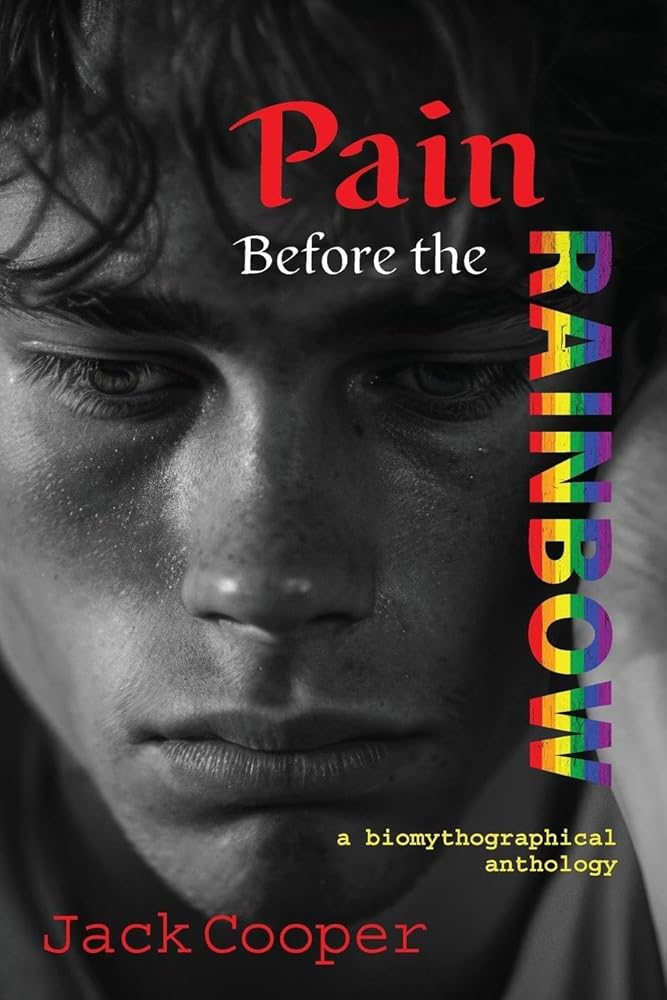
Pain Before the Rainbow: a biomythographical anthology/Anthony's Sin and Other Stories
$19.99
Unit price perPain Before the Rainbow: a biomythographical anthology/Anthony's Sin and Other Stories
$19.99
Unit price perPain Before the Rainbow: a biomythographical anthology by Jack Cooperis a collection of stories anchored by Anthony's Sin. The anthology includes poetry, essays, and eloquent explorations of life and love.
Cooper describes his work as Biomythography, which means weaving together myth, history, and biography in epic narrative form, a style of composition that represents all the ways in which we perceive the truth.
He says that Biomythography is not our truth told simply and in a mundane way, but a writing down of our meanings of identity, with the materials of our lives. He asserts that we are the culmination of it all; experiences are painted with imagery, perception, and mostly emotions. Details that become true in the telling.
This gripping book chronicles the life of a man who was acutely aware of being gay as a boy in an unaccepting world-a time before the rainbow. Cooper presents an eloquent narrative through a series of stories that engage the reader's mind and heart in this skillfully composed exploration of identity and compelling perspective through the lens of a man who lives and loves outside the lines of the oppressive heterosexual boxes that society and religion drew and that condition boys to think and act according to a preset definition of masculinity.
Cooper brilliantly navigates the shame and secrecy, tragedy, and trauma, as well as strength and courage, that grow out of living one's truth in a disapproving and often hurtful world.
The occupation of the West Bank and Gaza has been one of the world’s most widely reported yet least understood human rights crises for over four decades. In this oral history collection, men and women from Palestine―including a fisherman, a settlement administrator, and a marathon runner―describe in their own words how their lives have been shaped by the historic crisis. Other narrators include:
ABEER, a young journalist from Gaza City who launched her career by covering bombing raids on the Gaza Strip.
IBTISAM, the director of a multi-faith children’s center in the West Bank whose dream of starting a similar center in Gaza has so far been hindered by border closures.
GHASSAN, an Arab-Christian physics professor and activist from Bethlehem who co-founded the International Solidarity Movement. For more than six decades, Israel and Palestine have been the global focal point of intractable conflict, one that has led to one of the world’s most widely reported yet least understood human rights crises. In their own words, men and women from West Bank and Gaza describe how their lives have been shaped by the conflict. Here are stories that humanize the oft-ignored violations of human rights that occur daily in the occupied Palestinian territories.
Download the corresponding lesson plans on the Voice of Witness website.
A sharp analysis of the struggle for Palestine gets an update following the events of October 7, 2023.
Palestine, Israel, and U.S. Empire is an essential book for the current moment. Taking a firm anti-Zionist perspective on the history of Palestine and Israel, it traces the movements of resistance from British colonialism to the fight back in Gaza and the West Bank today.
From the division of the Middle East by Western powers and the Zionist settler movement, to the founding of Israel and its role as a watchdog for US interests, to present day conflicts and the prospects for a just resolution-this narrative is firmly rooted in the politics of Palestinian liberation. Here is a necessary contribution to the heroic efforts of the Palestinian people to achieve justice in the face of seemingly insurmountable odds. This book contains a complete index and a timeline of developments in the history of Palestine.
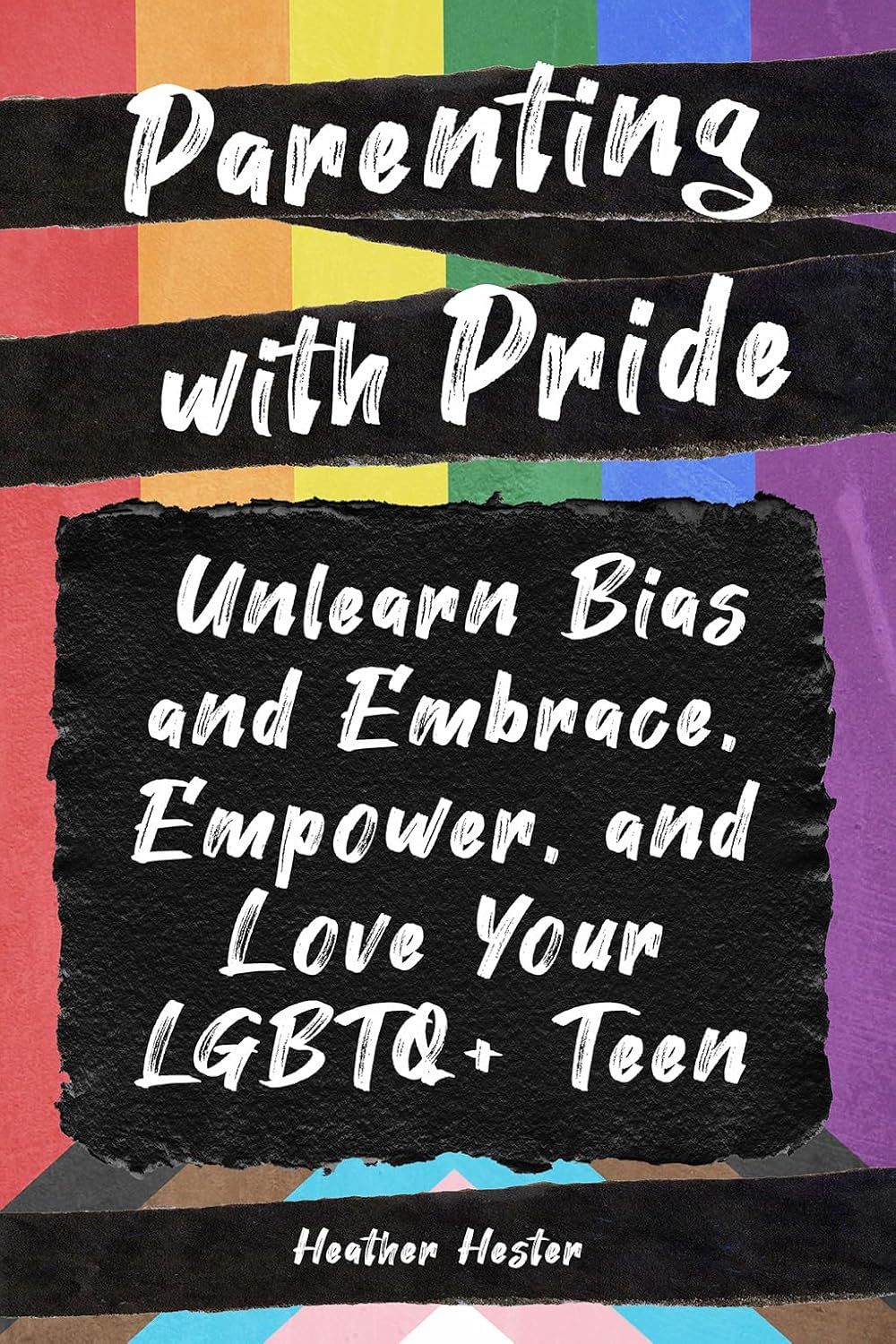
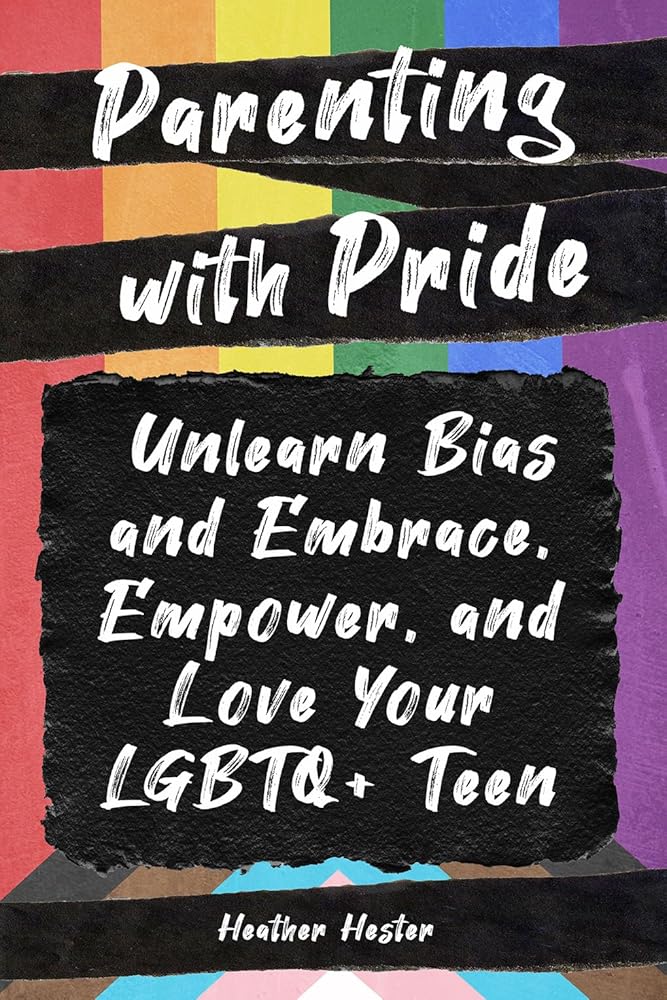
Parenting with Pride: Unlearn Bias and Embrace, Empower, and Love Your LGBTQ+ Teen
$18.99
Unit price perParenting with Pride: Unlearn Bias and Embrace, Empower, and Love Your LGBTQ+ Teen
$18.99
Unit price perThe ultimate LGBTQ parenting handbook, guiding parents and caregivers through transformative steps of Embrace, Educate, Empower, and Love so they can support their teen with open arms and hearts.
Your kid just came out to you, and amid the flurry of emotion or worry you might feel, you know you would do anything to protect their health and happiness. And you are not alone! Heather Hester, coach, advocate, and host of the #1 rated podcast, Just Breathe: Parenting Your LGBTQ Teen, combines an honest retelling of her own son’s coming-out experience with wide-ranging research, conversations with dozens of professionals, and the unique experiences of other families to provide the ultimate guidebook for parents embarking on this journey.
In Parenting with Pride: Unlearn Bias and Embrace, Empower, and Love Your LGBTQ+ Teen, Hester provides parents and caregivers with four transformations that gently, but purposefully, walk them through the four pillars toward fully supporting and loving your LGBTQ+ child: Embrace, Educate (or Unlearn), Empower, Love.
With trustworthy information and an accessible, straightforward plan, Parenting with Pride provides actionable yet profound tools and mental shifts to help parents support their teens and themselves and to be a catalyst for change in their communities.
Now an award-winning documentary feature film
The search for a “patient zero”—popularly understood to be the first person infected in an epidemic—has been key to media coverage of major infectious disease outbreaks for more than three decades. Yet the term itself did not exist before the emergence of the HIV/AIDS epidemic in the 1980s. How did this idea so swiftly come to exert such a strong grip on the scientific, media, and popular consciousness? In Patient Zero, Richard A. McKay interprets a wealth of archival sources and interviews to demonstrate how this seemingly new concept drew upon centuries-old ideas—and fears—about contagion and social disorder.
McKay presents a carefully documented and sensitively written account of the life of Gaétan Dugas, a gay man whose skin cancer diagnosis in 1980 took on very different meanings as the HIV/AIDS epidemic developed—and who received widespread posthumous infamy when he was incorrectly identified as patient zero of the North American outbreak. McKay shows how investigators from the US Centers for Disease Control inadvertently created the term amid their early research into the emerging health crisis; how an ambitious journalist dramatically amplified the idea in his determination to reframe national debates about AIDS; and how many individuals grappled with the notion of patient zero—adopting, challenging and redirecting its powerful meanings—as they tried to make sense of and respond to the first fifteen years of an unfolding epidemic. With important insights for our interconnected age, Patient Zero untangles the complex process by which individuals and groups create meaning and allocate blame when faced with new disease threats. What McKay gives us here is myth-smashing revisionist history at its best.
